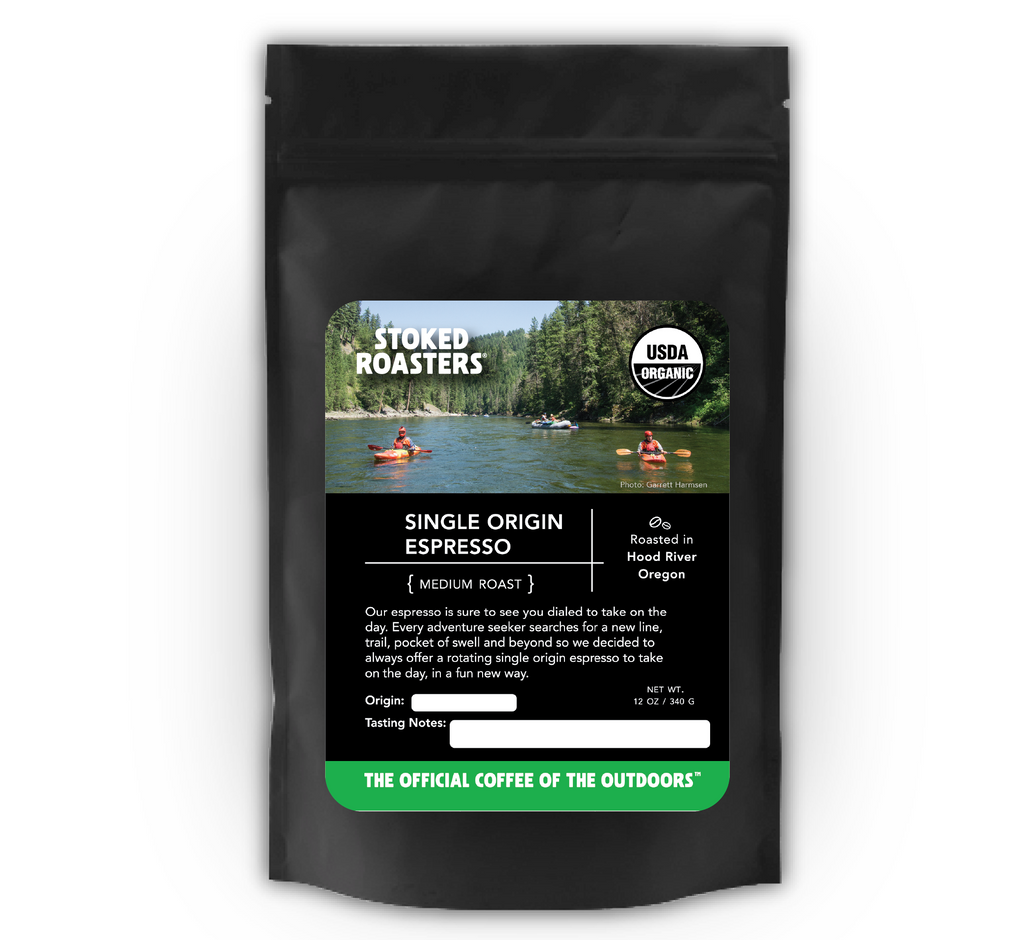Matching Food and Desserts with SOE Single Origin Espresso
Matching Food and Desserts with SOE Single Origin Espresso
Blog Article
Comprehending Coffee Beans: the Trip From Coffee to Blended Coffee Beans

The Origins of Coffee: An International Viewpoint
While you may believe of coffee as a contemporary staple, its origins trace back centuries, linking with cultures across the globe. The story starts in Ethiopia, where legend states a goat herdsman named Kaldi discovered the stimulating effects of coffee beans after discovering his goats romping energetically after eating them.
As trade paths broadened, coffee made its method to Europe in the 17th century, rapidly obtaining popularity. Each society included its distinct spin to coffee prep work, improving its background.
Cultivation and Harvesting of Espresso Beans
As coffee's trip developed, the emphasis changed to the growing and harvesting of particular bean ranges, especially those used for coffee. You'll discover that espresso beans typically come from Arabica or Robusta plants, each offering unique flavors. The perfect growing problems include high elevations and rich, well-drained soil, which improve the beans' high quality.
During the harvest, choosing techniques differ. In some areas, workers hand-pick ripe cherries, ensuring just the finest fruit mosts likely to processing. In other areas, mechanical farmers are utilized, specifically on larger farms. When the cherries reach peak perfection for maximum taste., timing is crucial; you desire to gather.
When gathered, the beans are planned for processing, which is essential in identifying their final taste. Comprehending the cultivation and harvesting procedures provides you understanding into what goes into your preferred espresso, enriching your appreciation for each and every cup.
Handling Techniques: From Cherry to Bean
Since you have actually learned about gathering espresso beans, allow's discover exactly how those cherries transform right into the coffee beans you like. You'll see how various harvesting strategies impact flavor, complied with by the necessary steps of fermentation and drying out. We'll damage down the milling and grading process that determines your coffee's high quality.
Gathering Techniques Explained
When it comes to coffee, understanding harvesting strategies is important, because they directly impact the flavor and high quality of the beans you take pleasure in. Discerning selecting includes hand-picking only ripe cherries, ensuring you get the best quality beans. Ultimately, the choice of harvesting technique can significantly affect your coffee experience, so it's worth understanding exactly how those beans made it to your mug.
Fermentation and Drying
After gathering, the next action in handling coffee beans play a significant role in forming their taste. You'll find that fermentation is crucial, as it assists damage down the mucilage bordering the beans, enhancing their taste profile. Depending upon the method, this process can last from a couple of hours to numerous days, with differing results based on temperature and moisture.
Sun-drying allows the beans to soak up flavors from the atmosphere, while mechanical drying out assurances regular wetness degrees regardless of weather. Proper drying out is crucial to prevent mold and maintain the beans' quality, eventually affecting your mug of coffee.
Milling and Grading Refine
As fermentation and drying out established the phase for flavor growth, the milling and grading process assurances that just the most effective coffee beans make it to your cup. This phase entails eliminating the outer layers of the coffee cherry, consisting of the parchment and husk. After milling, the beans are arranged by size and weight, guaranteeing a consistent top quality. You'll discover that grading aids determine defects and categorize beans, which impacts taste and scent. High-quality beans obtain a higher quality, causing a richer coffee experience. When graded, the beans await product packaging and delivery, maintaining their one-of-a-kind features. This precise procedure is necessary for delivering the outstanding preference you enjoy in every sip of your preferred mixture.
Toasting Strategies: Unlocking Taste Potential
When you roast coffee beans, the technique you select can dramatically affect the taste profile. Understanding the relationship between time, temperature level, and toasting strategies is essential to exposing the potential of your mixture. Allow's discover how these aspects integrated to develop the perfect cup.
Roasting Techniques Clarified
While you could assume that all coffee toasting methods yield the same results, the truth is that each strategy reveals one-of-a-kind flavor potentials in the beans. Drum roasting makes use of a rotating drum to equally distribute heat, improving caramelization and creating a balanced flavor. Air roasting, on the various other hand, distributes hot air around the beans, advertising a lighter roast with obvious acidity.

Influence On Taste Profile
Different toasting approaches not just affect the Single Origin Espresso procedure yet additionally significantly influence the flavor profile of the coffee beans. Dark roasts, on the other hand, bring out vibrant, smoky flavors, occasionally masking the bean's one-of-a-kind qualities. Recognizing these nuances assists you appreciate the virtuosity behind your cup of coffee, improving your overall experience with every sip.
Time and Temperature Level Aspects
To release the full flavor capacity of coffee beans, both time and temperature level during the toasting procedure play substantial functions. When roasting, you'll find that greater temperature levels can rapidly develop flavors, yet if you hurry it, you may wind up with scorched notes. Conversely, lower temperature levels enable a more progressive taste development, showcasing the beans' unique characteristics.

Timing is just as important; prolonging the roast too long can lead to a loss of acidity and brightness, while too brief a roast may leave the beans underdeveloped. Locating that sweet area requires method and testing. By changing these aspects, you can reveal the abundant, complicated tastes concealed within each bean, creating an absolutely amazing coffee experience.
The Art of Mixing: Crafting One-of-a-kind Coffee Accounts

Begin by choosing a base coffee that offers a strong structure. After that, pick complementary beans to enhance specific taste notes. For example, an intense Ethiopian bean can bring fruitiness, while a rich Brazilian coffee includes body. Experimentation is essential-- don't be terrified to readjust ratios until you find your optimal account.
As you blend, keep in mind that each combination tells a tale. You're not just making coffee; you're creating an experience. Take your time, taste regularly, and delight in the journey of uncovering your trademark mix - Single Origin Espresso.
Developing Methods: How Preparation Affects Flavor
Blending coffee opens a domain name of taste opportunities, yet just how you make that mix can considerably influence your last mug. Various developing approaches extract distinct flavors and fragrances, so it's essential to choose wisely. A French press permits oils and debris to continue to be, producing a rich, full-bodied experience. On the various other hand, a pour-over highlights the coffee's clearness and brightness, excellent for showcasing fragile notes.
Coffee, with its high stress, produces a concentrated shot that emphasizes sweet taste and crema. If you choose a lighter brew, take into consideration a chilly brew approach; it yields a smooth, much less acidic preference.
Inevitably, testing is key. Readjusting variables like water temperature level, grind size, and brew time can transform your coffee's profile. Embrace the art of developing to uncover the tastes concealed in your coffee blends. The right technique can raise your experience to brand-new elevations.
The Future of Coffee: Sustainability and Development
As the coffee sector develops, sustainability and innovation are becoming necessary for attending to ecological difficulties and conference consumer demands. You'll notice that more coffee business are taking on environment-friendly methods, from sourcing beans fairly to carrying out lasting farming strategies. These changes not just assist the world however likewise boost the top quality of the coffee you appreciate.
You may see developments like eco-friendly product packaging and water-saving developing techniques that decrease waste. Advanced technology, such as blockchain, is also becoming preferred, making sure transparency in the supply chain, which enables you to map your coffee back to its origins.
On top of that, investing in local neighborhoods and supporting farmers via fair trade campaigns fosters an extra lasting coffee ecological community. As you sip your following mug, keep in mind that your selections can contribute to a brighter future for coffee. By selecting lasting brands, you're not simply delighting in a drink; you're making a positive impact on the globe.
Often Asked Concerns
What Is the Difference Between Arabica and Robusta Beans?
Arabica beans are smoother, sweeter, and have a greater level of acidity, while robusta beans are more powerful, a lot more bitter, and include more high levels of caffeine. You'll see these distinctions in taste and aroma when brewing your coffee.
How Does Altitude Affect Coffee Bean Taste?
Altitude effects coffee bean flavor substantially. Higher elevations produce beans with brighter level of acidity and facility flavors, while lower elevations usually produce beans that are heavier and much less nuanced. You'll see these distinctions in your cup!
What Are the Health And Wellness Benefits of Alcohol Consumption Coffee?
Consuming coffee can enhance your power, boost psychological emphasis, and even improve physical performance. It's abundant in antioxidants, may reduce the threat of specific conditions, and can advertise a much healthier metabolic rate when eaten in moderation.
Can Coffee Beans Be Reused for Brewing?
Yes, you can recycle coffee beans for developing, but the taste might be weaker. If you enjoy exploring, try recycling them in various ways, like cold brews or adding to healthy smoothies for an extra kick.
How Should I Shop Coffee Beans for Quality?
To maintain your coffee beans fresh, store them in a closed container in an awesome, dark area. Stay clear of subjecting them to warm, light, or wetness, as these aspects can swiftly weaken their taste and scent.
Recognizing Coffee Beans: the Trip From Espresso to Blended Coffee Beans.
Now that you've found out regarding harvesting coffee beans, let's explore exactly how those cherries transform into the coffee beans you enjoy.When you roast coffee beans, the technique you pick can dramatically influence the taste account - Single Origin Espresso.While you may assume that all coffee toasting methods generate the exact same results, the reality is that each technique discloses unique flavor capacities in the beans.Different roasting methods not just influence the procedure however additionally substantially affect the taste profile of the coffee beans
Report this page